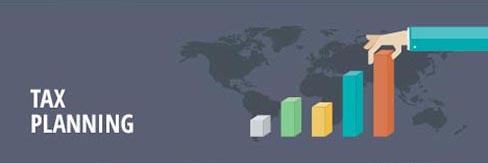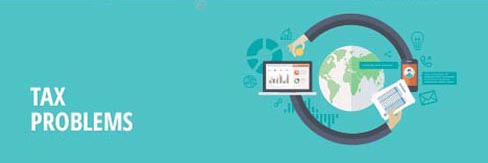Here are some straightforward tips for either saving your company Corporation Tax, or extracting money from the company tax efficiently. Why pay more tax than you need to?
Dividends
New rules were brought in for dividends from 6 April 2016 and initially individuals could earn up to £5,000 in dividends without any income tax charge. From 6 April 2018 this was reduced to £2,000. Amounts received above this level are taxed at 7.5%, 32.5% and 38.1% depending on the relevant tax band. It still makes sense to operate via a limited company provided profits are below £150,000 for a single-person business.
Dividends don't attract NIC's. Your company must have sufficient retained profits to pay a dividend. Make sure that those receiving dividends receive a salary high enough to maintain their NIC record.
Shareholdings
You may consider splitting your shareholding with your spouse.
This would enable a benefit from using your other half’s tax allowance (especially if they have no other source of income).
Make sure you only declare dividends when there are sufficient accumulated profits in the company to do so.
Penalties will apply to any dividends which have not been declared properly.
Company Cars
Have you considered whether the cars used in your business would be better owned personally?
If you use a company car personally you will be taxed on the benefit-in-kind and the company will pay Class 1A NI.
Owning the car personally will not attract the benefit in kind and mileage can be claimed at the approved rate of 45p/25p per mile.
The right choice however will depend on the circumstances and the vehicle involved and we can review your situation and advise whether it’s more tax efficient to own the vehicle yourself, or run it through your company.
Pension Contributions
Your company can make contribute towards your pension. The payments are deductible expenses for Corporation Tax purposes in the year they are made.
Using pension vehicles such as Small Self Administered Scheme or a Self-Invested Personal Pension can be beneficial when premises are being purchased. The rent received will not be taxed in the SSAS/SIPP & the company will receive a tax deduction for the rent.
This can also be advantageous when you sell your business. It’s a lot easier sometimes to sell the business and have it rent its premises from your pension fund than it is to sell both the business and the premises.
Family Members
Do your family members (spouse, children) help or work in the business? If so, then consider whether they should own shares in the company too.
That way you can take advantage of their basic rate allowance and pay dividends to them as well.
If you have children aged at least 13 and they help out in your business, then you can pay them a wage.
You can also pay your spouse or partner for work they do in the business.
We can advise you on the most tax efficient salary levels.
Expenses
Make the most out of the expenses you can put through your company.
As long as you only ever claim for things that have been genuinely incurred on business duties, there are savings to be made.
You may be able to claim for the costs of working from home, for example.
VAT
Consider joining the Flat Rate VAT Scheme.
Not only does this make your VAT accounting simpler, but you may pay less tax overall depending on the amount of VAT you charge, and reclaim.
During the first year, you receive an additional 1% discount on the flat rate you have to pay to HMRC.
The VAT cash accounting scheme offers more of a cashflow benefit than ‘tax saving’ per se – it allows you to only account for VAT once an invoice has been paid, rather than when it has been issued.
Annual Investment Allowance
The annual investment allowance, or AIA for short, is a capital allowance which provides full write off of qualifying capital expenditure in the year of purchases for plant and machinery.
| Plant and machinery | 2017/18 | 2018/19 | 2019/20 |
|---|---|---|---|
| AIA of 100% of expenditure up to | £200,000 | £200,000 | £1m |
| £1m from 1/1/19 |
The allowance is £500,000 a year until 31 December 2015. By reviewing and planning expenditure it is possible to reduce profits subject to Corporation Tax.
Entrepreneurs’ Relief
Subject to eligibility (e.g. you must have held shares in the company and been a director or employee for a year or more), you may qualify for Entrepreneurs’ Relief on the sale of your limited company.
From 6 April 2019 the 12 month holding requirement stated above will be increased to 24 months.
The current ER rate is 10%, compared to standard CGT rates of 10% or 20% (higher rate).
Statutory Deadlines
Whatever you do, make sure you meet your accounting and statutory deadlines, especially for submission of the confirmation statement and your company accounts.
The penalties for late submission can be great.
Dividends
Shareholdings
Company Cars
Pension Contributions
Family Members
Expenses
VAT
AIA
Entrepreneurs’ Relief
Statutory Deadlines
Company Pages ► Limited Companies ■ Tax Saving for Limited Company Owners ■ Tax Rates ■
Registered office: 61 Friar Gate, Derby, Derbyshire, DE1 1DJ T: 01332 202660
Adrian Mooy & Co is the trading name of Adrian Mooy & Co Ltd. Registered in England No. 05770414
v
Services
.png?crc=484381513)

01332 202660
61 Friar Gate Derby DE1 1DJ

Sign
up
Newsletter



